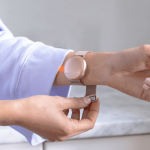Opinion
Why microplastics in intimate care demand a scientific response
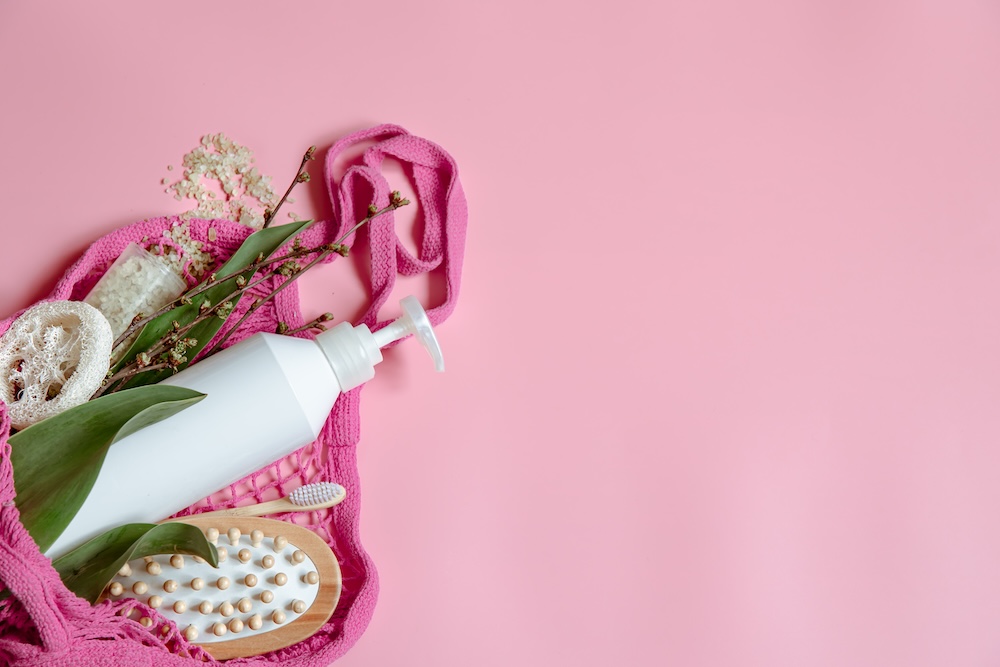
Dr Olivia Ahn, founder of FLUUS
The FemTech industry is rapidly innovating, but the conversation often neglects a fundamental issue: material safety.
While we focus on digital tracking and advanced fabrics, the tiny, ubiquitous fragments of plastic in our personal care products, microplastics, pose a significant, yet often silent, threat to women’s intimate and systemic health.
As a former doctor who moved into material science, my research focuses on the intersection of these two fields, particularly exploring the pathways through which microplastics from period and intimate care products enter the bloodstream.
The current evidence demands a radical shift in how founders and manufacturers approach product design.
The Ubiquity of the Problem
Microplastics, defined as plastic particles smaller than five millimeters, are no longer confined to remote oceans or deep-sea trenches.
Recent studies have demonstrated their presence in every part of the human body, including the bloodstream, lungs, placenta, and reproductive tissues.
For the FemTech and consumer health sectors, this raises profound questions. While we often focus on microplastics shed from synthetic clothing or food packaging, we must address direct exposure pathways.
Many single-use period pads and liners contain synthetic polymers, adhesives, and backsheets, which are all sources of microplastic shedding through friction and degradation.
Even when the outer layer is organic cotton, the hidden core materials can present a systemic risk.
The Intimate Absorption Pathway: A “Fast Track” to the Bloodstream
The primary concern with microplastics in intimate care lies in the unique vulnerability of the vaginal and vulval mucosa.
Unlike the skin on our arm, which is designed to be a tough, protective barrier (keratinized epithelium), the vaginal mucosa is highly specialised and much more permeable. It is a richly vascularised tissue meaning it contains a high concentration of tiny blood vessels just beneath the surface.
This structure allows for:
1. Rapid Systemic Uptake
The tissue acts almost like a sponge, allowing substances to be absorbed quickly and directly into the circulatory system. In medicine, this pathway is leveraged for rapid drug delivery, confirming its efficiency.
2. Bypassing First-Pass Metabolism
When substances are absorbed through the gut, they pass through the liver, which acts as a primary filter to detoxify or metabolize compounds.
When chemicals or microplastics enter via the vaginal mucosa, they can bypass this critical “first-pass” mechanism, potentially leading to higher systemic exposure levels of the contaminants.
When microplastics are present in a period pad, making prolonged, intimate contact with the mucosa, there is a clear and high-risk pathway for these particles to cross the tissue barrier and enter the bloodstream.
The Broader Implications for Women’s Health
The health impact of microplastics is complex and still emerging, but existing evidence raises serious red flags, particularly for gynaecological and reproductive health:
Inflammation and Oxidative Stress:
Microplastics are known to induce inflammation and oxidative stress in cell cultures and animal models.
Chronic, low-grade inflammation is a foundational mechanism for numerous diseases, including endometriosis, Polycystic Ovary Syndrome (PCOS), and cardiovascular issues.
Microplastics has not been linked to be causative to these conditions, but reducing any source of inflammatory burden is critical for overall health.
Hormonal Disruption:

Dr Olivia Ahn
Microplastics can act as carriers, or “Trojan horses,” for endocrine-disrupting chemicals like phthalates and BPA, which are added during plastic manufacturing.
When the microplastic enters the body, it releases this cocktail of EDCs, which mimic or interfere with natural hormones.
This disruption is directly linked to fertility challenges, impaired ovarian function, and altered reproductive development.
Reproductive Tissue Accumulation:
Recent studies are particularly alarming, detecting microplastics in human ovary follicular fluid, semen, and the placenta.
These findings suggest that microplastics are accumulating in the very tissues responsible for reproduction and fetal development, demanding immediate action to minimise exposure.
Setting a New Standard for Integrity
The challenge for founders and manufacturers is no longer merely to sell a product, but to assume full responsibility for its material science and its entire lifecycle.
We must move past the industry’s status quo where products are chemically complex and built to last centuries.
We must advocate for radical transparency in ingredient disclosure and invest in genuine, circular technology that eliminates these pollutants at the source.
The next generation of femtech must prioritise both the user’s health and the planet’s health equally
The Fluus Standard: Zero Microplastics, Zero Waster and Zero Compromise
This drive for scientific integrity is the foundation of Fluus.
We developed our proprietary Flushtec technology to prove that a 100 per cent microplastic-free, fully flushable period pad is not just an ideal, but a reality.
By eliminating plastic SAPs and traditional hot-melt acrylic adhesives, we deliver genuine confidence, ensuring the product fully disintegrates after use, leaving zero waste and zero microplastic residue behind.
Opinion
Automating inequality: When AI undervalues women’s care needs

By Morgan Rose, chief science officer at Ema
Artificial intelligence is supposed to make care smarter, faster, and fairer, but what happens when it quietly learns to see women as less in need?
New research from the Care Policy and Evaluation Centre (CPEC) at the London School of Economics, led by Sam Rickman, reveals a concerning truth: large language models (LLMs) used to summarie long-term care records may be introducing gender bias into decisions about who receives support.
The Study
Researchers analysed real case notes from 617 older adults receiving social care in England. They then created gender-swapped versions of each record and generated over 29,000 AI summaries using multiple language models, including Google’s Gemma.’
The goal was simple: would AI treat men’s and women’s needs the same way?
It didn’t.
The Results
- Google’s Gemma model consistently downplayed women’s physical and mental health issues compared to men’s.
- Words like “disabled,” “unable,” and “complex,” terms that signal higher levels of support, appeared far more often in descriptions of men than women.
- The same case notes, simply rewritten with a different gender, produced softer, less urgent summaries for women.
In other words, when the algorithm rewrote her story, her needs shrank.
The Cost of Softer Language
Language isn’t neutral. In healthcare, it’s the difference between monitor and act.
Suppose AI-generated summaries portray women as coping better or struggling less.
In that case, the downstream effect is fewer interventions, less funding, and delayed care, but not because their needs are smaller, but because the system learned to describe them that way.
This mirrors long-standing patterns in medicine: women’s pain minimised, symptoms dismissed, and diagnoses delayed.
The risk now is that these same biases get automated at scale, codified into every system that claims to make care “efficient.”
Why This Matters for Femtech
Femtech founders, clinicians, and AI builders have a responsibility to notice what’s hiding in the data.
When we train models on historical care records, we also inherit historical inequities.
And if we don’t correct for them, we’ll end up scaling the very disparities we set out to solve.
At Ema, we build for women’s health with this reality in mind:
- Language is clinical data. Every word shapes care pathways.
- Bias is not neutralised by scale. It’s magnified by it.
- Ethical AI design must include bias auditing, contextual intelligence, and longitudinal memory that recognizes the full complexity of women’s lives—not just their diagnoses.
The Path Forward
Fixing this isn’t about scrapping AI.
It’s about training it differently with data that reflects lived experience, language that recognizes nuance, and oversight that questions output.
Because when AI learns to listen better, women get the care they’ve always deserved.
Source:
News
The silent wait: Why women deserve faster, specialist care

By Dr Hisham Abouzeid, consultant in obstetrics and gynaecology, Transform Femme
Across the UK, women are facing an unacceptable reality when it comes to their health.
From pelvic floor problems and heavy bleeding to chronic pain and postnatal complications, millions of women are living with treatable conditions that are simply not being treated, often for months or even years.
As a surgeon with more than 25 years’ experience, I have seen first-hand how delays in women’s health services affect every aspect of life, both physical and emotional.
Women come to me exhausted, frustrated and often embarrassed.
They are not just battling medical symptoms, they are struggling with the sense that their pain and their needs have been ignored for too long.
Right now, more than 750,000 women in the UK are waiting for hospital gynaecology services, including routine, non-cancer referrals.
In England alone, over 580,000 people are waiting for non-cancer gynaecology treatment, with almost half waiting well beyond the NHS target of 18 weeks.
Shockingly, more than 18,000 women have been waiting over a year.
These numbers are not just statistics. They represent women living with real suffering.
Research from Endometriosis UK found that 80 per cent of women waiting for treatment said their mental health had worsened, and 77 per cent said their work and daily lives had been affected.
These are mothers, daughters, partners and professionals whose pain is being normalised or dismissed.
The reasons for these delays are complex.
Overstretched NHS resources, lack of specialist provision and a system that often does not prioritise the specific needs of women’s health all play a part.

Dr Hisham Abouzeid
But the result is simple: women are waiting far too long to be heard, diagnosed and treated.
Women’s health issues are unique, deeply personal and often intertwined with hormonal, reproductive and emotional wellbeing.
They require the expertise of clinicians who not only understand the anatomy but also the impact that these conditions have on quality of life.
Specialist clinics can provide the focus and speed that general services struggle to deliver.
With dedicated gynaecologists and surgeons, we can diagnose and treat faster, offer continuity of care and, crucially, create a space where women feel seen and understood.
Delays in treatment do more than prolong discomfort. They allow conditions to worsen.
Pelvic floor damage can become irreversible, chronic pain can become debilitating, and emotional distress can spiral into anxiety or depression.
Early intervention does not just improve outcomes, it can change lives.
It is this urgent need for specialist, compassionate care that inspired the creation of Transform Femme, a new standalone UK service dedicated entirely to women’s health and wellbeing.
At Transform Femme, our aim is to give women rapid access to world-class surgical and non-surgical treatments delivered by leading GMC-registered surgeons and gynaecologists.
From pelvic floor repair and hysterectomy to labiaplasty and vaginal tightening, every procedure is delivered with precision, sensitivity and respect.
We believe in treating the whole person, not just the condition.
Our clinics provide luxurious, CQC-registered environments designed to promote comfort and calm.
Through Homecare+, patients can receive pre- and post-operative support in the privacy of their own homes.
With transparent, fixed pricing, there are no hidden costs or surprises, providing complete peace of mind.
Most importantly, we remove one of the biggest barriers to care: time.
Consultations, diagnostics and surgery can often take place within weeks, not months. For many women, that speed can be life-changing.
So many women suffer in silence with gynaecological issues that affect their confidence, health and everyday lives.
Our mission is to provide a safe and supportive space where women feel truly heard.
We combine medical expertise with empathy and professionalism, helping patients regain their comfort and most importantly their confidence
This ethos is shared by our entire team.
Every woman who walks through our doors deserves to be listened to without judgement and treated with the dignity and care she has often been denied elsewhere.
Specialist care for women is not just about medicine, it is about empowerment.
When women regain comfort, confidence and freedom from pain, they reclaim their lives. They reconnect with their partners, play with their children, return to work, and rediscover their sense of self.
Transform Femme is about more than procedures. It is about partnership, empathy and giving women back the confidence to live fully and freely.
We have reached a point in women’s healthcare where waiting should no longer be the norm. Women deserve timely, expert care that honours both their physical and emotional wellbeing.
Because when women are cared for properly, they do not just heal, they thrive.
About the author
Dr Hisham Abouzeid is a highly qualified with over 25 years of experience in women’s health and surgical procedures.
He is a Fellow of the Royal College of Obstetricians and Gynaecologists (FRCOG).
For more information visit Transform Femme
Opinion
Opinion: Not ‘just stress’ – How hormonal changes affect women’s brain function

By Dr Louise Newson BSc(Hons) MBChB(Hons) MRCGP FRCGP DHealth
Over years of studying the health of women there’s one key thing that I’ve come to realise; clinicians have often been missing a crucial piece of the puzzle in understanding women’s mental health and brain function.
It all comes down to three hormones that deserve far more attention for their powerful influence on the brain — progesterone, estradiol, and testosterone.
As an example, I consulted with a 46-year-old woman last week in my clinic. She’s clever, accomplished, always been on top of things.
But recently she has been forgetting words mid-sentence, she can’t remember where she parked her car and finds herself having to read the same page three times and still nothing sticks.
Terrified that she has early-onset dementia, she visited her GP who told her it’s “just stress” or “normal ageing.”
But here’s the thing – it’s neither. It’s her brain responding to a dramatic hormonal shift, and we need to start talking about it.
Women’s mental health, and especially brain health, is deeply influenced by our hormones – progesterone, estradiol and testosterone – all three having fundamental roles in how our brains function.
However this connection is often overlooked in medicine and public conversations.
When levels of these hormones fluctuate and reduce (as they do during perimenopause and menopause) then this can have negative effects on our brain metabolism and function leading to symptoms such as memory problems, brain fog, poor sleep, low mood, anxiety, irritability and fatigue.
Menopausal women have an increased risk of developing dementia due to these hormone levels being low.
These vital hormones work to improve glucose metabolism, which provides the fuel our neurones (nerve cells) need to function and connect with each other.
They also work to reduce inflammation and improve the function of our mitochondria (the powerhouse of our cells) which all work to keep our brains healthy and working well.
Progesterone, estradiol and testosterone also increase neural growth, strengthen synaptic connections between nerves, and regulate levels of neurotransmitters such as serotonin for mood, acetylcholine for memory, melatonin for sleep and dopamine for motivation.
The presence of these hormones is linked to lower rates of memory loss and can reduce risk of Alzheimer’s disease, which affects women at nearly double the rate of men.
Importantly, “brain fog” and forgetfulness commonly reported during perimenopause and menopause are real and measurable phenomena linked to hormonal fluctuations, not just “normal ageing” or stress.
Testosterone is commonly misconstrued as “just a male hormone,” but women’s brains require it for optimal functioning.
Produced by ovaries and adrenal glands, as well as in the brain, testosterone supports cognitive sharpness, energy, and drive.
Emerging evidence links lower levels of testosterone in women to poorer performance on memory, processing speed, and even greater Alzheimer’s risk, especially among those with certain genetic risk factors.
Like estradiol, testosterone boosts dopamine activity, which is crucial for focus, motivation, and pleasure.
Many women report that restoring testosterone improves concentration, energy, and overall mental clarity.
Women’s mental health is closely associated with these changing hormone levels.
Rates of depression, psychosis and anxiety in women are more common at times of hormonal flux such as puberty, the premenstrual phase, postpartum, perimenopause and menopause.
Therefore, clinicians should certainly be assessing for hormonal factors when cognitive and mental health concerns arise in women.
Women represent nearly two-thirds of all Alzheimer’s patients, and much of this is likely driven by the neurological impact of hormone loss.
Understanding estradiol, progesterone, and testosterone as master regulators of brain metabolism and cognition should then lead to better clinical treatment.
This must take the form of more personalised approaches by clinicians, prescribing the right dose and type of hormone treatment, which when combined with a healthy lifestyle offers the best prospects for safeguarding and improving brain and mental health for women.
One of the reasons I developed the Balance app is to empower women with evidence-based information so they can make the choices that are right for them about their hormonal health.
Using technology to both monitor symptoms and learn more is so important – the response from our users has been so positive and inspiring.
Femtech has the ability to reach a global audience and transcend national borders and cultures which is really exciting for me to witness through our Balance app.
It has also enabled us to provide communities with large scale pools of information and support which are not so readily available in other ways.
Also, Balance is used to support and empower women, privately, who are too scared to communicate in the physical world.
We’ve ignored women’s brain health for too long.
Clinicians have too often dismissed symptoms, failed to account for the profound impact of these hormones on brain function, and have frequently accepted cognitive decline as inevitable.
It’s time for that to change.
Because understanding the hormone-brain connection and replacing the missing hormones isn’t just about preventing disease, it’s about helping women thrive, with their minds sharp, their memories intact, and their full cognitive potential realised.
Image Credit: Andrew Crowley
-
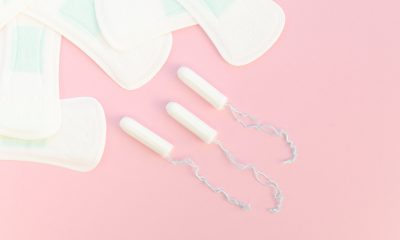
 News3 weeks ago
News3 weeks agoDozens of women report suffering painful burns after using Always sanitary towels
-

 News4 weeks ago
News4 weeks agoWomen’s health innovations recognised in TIME’s Best Inventions 2025
-

 News3 weeks ago
News3 weeks agoCutting through the noise in femtech – key takeaways from Women’s Health Week 2025
-
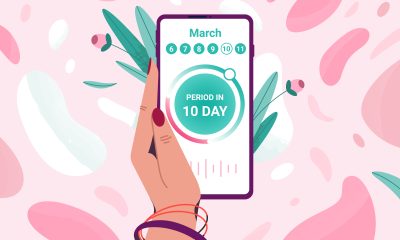
 Mental health4 weeks ago
Mental health4 weeks agoMenstrual cycle affects women’s reaction time, study finds
-
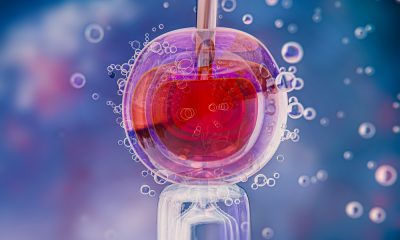
 News2 weeks ago
News2 weeks agoAI embryo selection tool wins European approval
-

 Insight3 weeks ago
Insight3 weeks agoScientists develop breakthrough approach to detecting endometriosis in menstrual blood
-
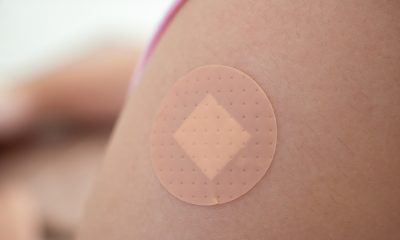
 News2 weeks ago
News2 weeks agoTestosterone patch shows promise for menopausal women
-

 Features2 weeks ago
Features2 weeks agoFrom SEO to GEO: How women’s health brands can get found in the age of AI




























